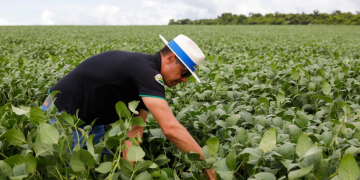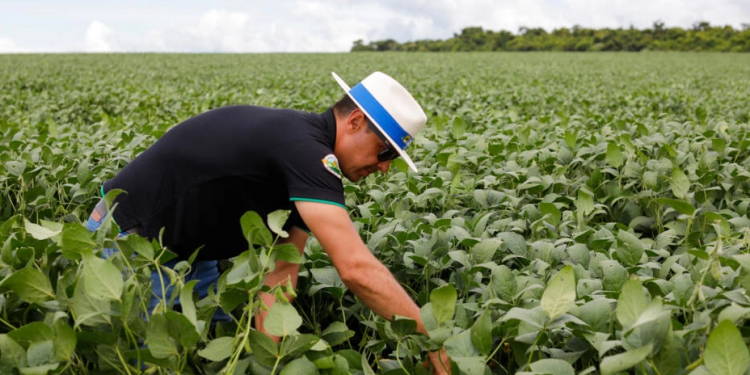#Brazil #agriculture #naturalpesticides #regenerativeagriculture #sustainability #eco-friendlyfarming #biopesticides #environmentalstewardship #agriculturalinnovation
In the heart of Brazil’s agricultural landscape, a transformation is underway. Adriano Cruvinel, a forward-thinking farmer, is leading the charge towards a more sustainable future. With a commitment to regenerative agriculture, Cruvinel has significantly reduced his reliance on chemical pesticides, opting instead for natural biopesticides derived from microorganisms. This innovative approach not only benefits the environment but also enhances profitability.
Brazil, renowned for its vast expanses of soy, corn, and cotton fields, has long been synonymous with intensive chemical pesticide use. However, Cruvinel’s success story highlights a growing trend among farmers to prioritize eco-friendly alternatives. According to data from the UN’s Food and Agriculture Organization, Brazil accounted for nearly one-fifth of global chemical pesticide sales in 2021, totaling approximately 720,000 metric tons. Yet, amidst this ‘agri-tox’ landscape, Cruvinel’s farm stands as a beacon of change.
At the forefront of this agricultural revolution, Cruvinel’s farm in Montividiu serves as a model of sustainability and innovation. Through meticulous experimentation and investment in cutting-edge technology, he has cultivated a diverse array of microorganisms, harnessing their natural pest-fighting properties. By integrating these biopesticides into his farming practices, Cruvinel has achieved remarkable results: a 61 percent reduction in production costs coupled with a 13 percent increase in soy yields.
Marcos Rodrigues de Faria, a researcher at Embrapa, Brazil’s premier agricultural research institution, underscores the transformative potential of natural pesticides. While acknowledging the progress made, he emphasizes that the journey towards widespread adoption is ongoing. Nonetheless, Cruvinel’s success story serves as a testament to the feasibility and benefits of embracing sustainable agricultural practices.
Brazil’s shift towards natural pesticides marks a pivotal moment in the evolution of global agriculture. As farmers like Adriano Cruvinel lead the way, prioritizing environmental stewardship alongside profitability, the industry stands poised for a greener, more sustainable future.































